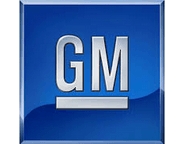Analysis

September 12, 2019
General Motors Faces Potential Strike
Written by Sandy Williams
A potential strike by janitorial workers at General Motors may cause disruption at five GM plants, if autoworkers don’t strike first. The United Auto Workers is ending a contract extension on Saturday, Sept. 14, with janitorial services company Aramark, which coincides with the expiration of auto worker contracts with GM, Ford and FCA.
Should a janitor strike ensue, GM union members are likely to show their support by refusing to cross picket lines. The workers for Aramark provide essential services that keep the operations open at GM Metal Center in Cleveland, Flint Assembly, Flint Engine Operations, Flint Metal Center and the Technical Center in Warren, Mich. GM says there are contingency plans in place to cover any disruptions.
Detroit auto experts say there is a strong possibility that GM workers may also strike as talks approach the Saturday night deadline.
Union workers hope to cash in on the profits that automakers have reaped in recent years, while resisting efforts by GM to reduce hourly wages and health care benefits. The UAW seeks to limit the number of temporary workers GM can use as well as giving new workers a quicker path to senior-level wages. The new agreement should include a cost of living allowance as an offset to inflationary pressures during the life of the contract, says the UAW.
GM is facing headwinds from trade wars, tariffs, fuel standards, high health costs and a slowing economy. The manufacturer has idled three U.S. plants since November and a fourth, Detroit Hamtramck, is scheduled to close in January.
GM wages are on average $13 per hour more than those of non-unionized production workers in the U.S. Ford pays on average $11 more and FCA $5 more. Health care costs at Ford are expected to top $1 billion next year for its hourly workers, reported Automotive News. GM and FCA have seen health care costs grow annually.
“It’s just difficult to see how both sides can come to an agreement,” said Kristin Dziczek, Center for Automotive Research’s vice president of the industry, labor and economics. “Union membership expectations are very high given how well GM has been performing,” she added.
In an analyst call hosted by UBS Securities, Dziczek said there is more than a 50 percent chance of a strike that could disrupt production for several weeks.
A corruption scandal concerning UAW executives has shaken the membership, which may drive negotiators to seek a tougher agreement to restore confidence in the union’s leadership.
If a tentative deal is not reached by the deadline at 11:59 p.m. on Saturday, the current contract could be extended or workers may walk off their jobs.







